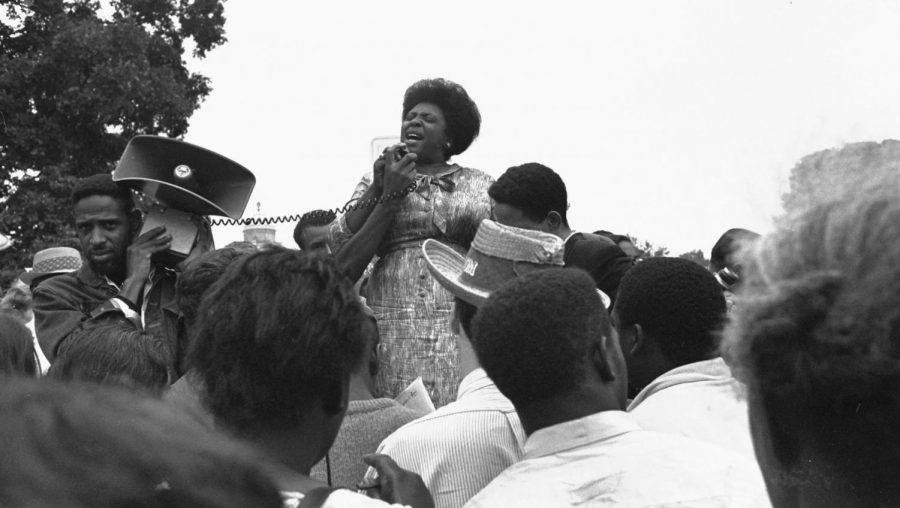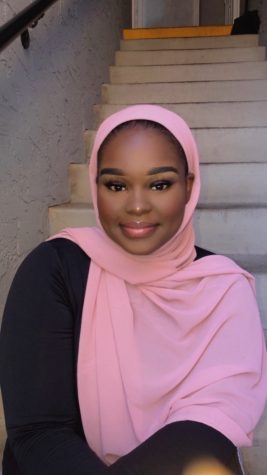Fannie Lou Hamer
In honor of Black History Month, every day The Cardinal will feature a prominent and historical Black American, living or dead, who has worked toward change, advancement, and/or world peace. Some of them are heroes, and some are unsung heroes who have made a contribution to society.
February 10, 2021
Fannie Lou Hammer was born on October 6, 1917. Fannie became one of the most important powerful voices of civil rights and voting rights. She was born on October 6, 1917 in Mississippi. She grew up in poverty and began picking cotton and stopped going to school at the age of 12. By age 13 she would pick 200–300 pounds of cotton daily while living with polio. Fannie continued to develop her reading and interpretation skills in Bible study at her church. In 1944, after the plantation owner discovered her literacy, she was selected as its time and record keeper.
In 1961, she got a hysterectomy by a white doctor without her permission while she was getting surgery for a tumor. The doctor did this because he wanted to reduce the population of Black women. Forced sterilization was a common method of population control in Mississippi that targeted poor, African-American women. Members of the Black community called the procedure a “Mississippi appendectomy.”
She then became part of the Student Nonviolent Coordinating Committee (SNCC), which fought for civil rights, and then on August 31, 1962 guided 17 volunteers to register on voting. The group was hard pressed and was fined $100 for the trumped up charge that the bus was “too yellow.¨ In June 1963, she was successfully able to vote but was later several Black women, including her, were arrested for sitting at a whites only bus station and brutally beaten and suffered from life long blood clot in her eye, kidney damage and leg damage. In 1964, she organized Freedom Summer which brought together many college students and even white people to help African Americans with voter registration.
By June 1974, Hamer was said to be in extremely poor health. Hamer died of complications of hypertension and breast cancer on March 14, 1977, aged 59, at Taborian Hospital, Mound Bayou, Mississippi. It’s important that she is recognized because she has never failed to make an effort on encouraging Black people to vote.


